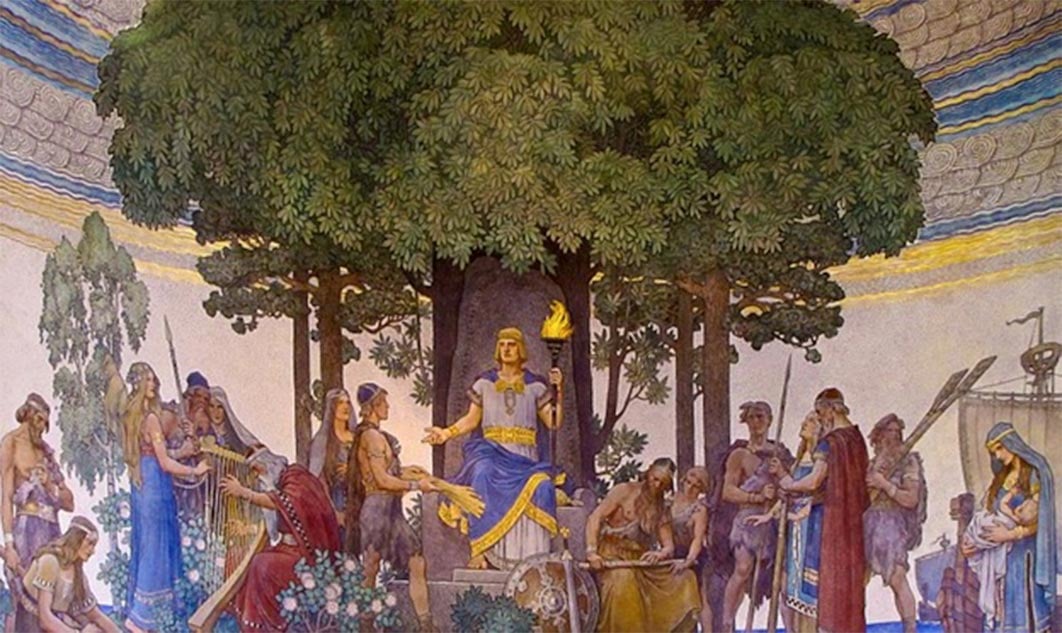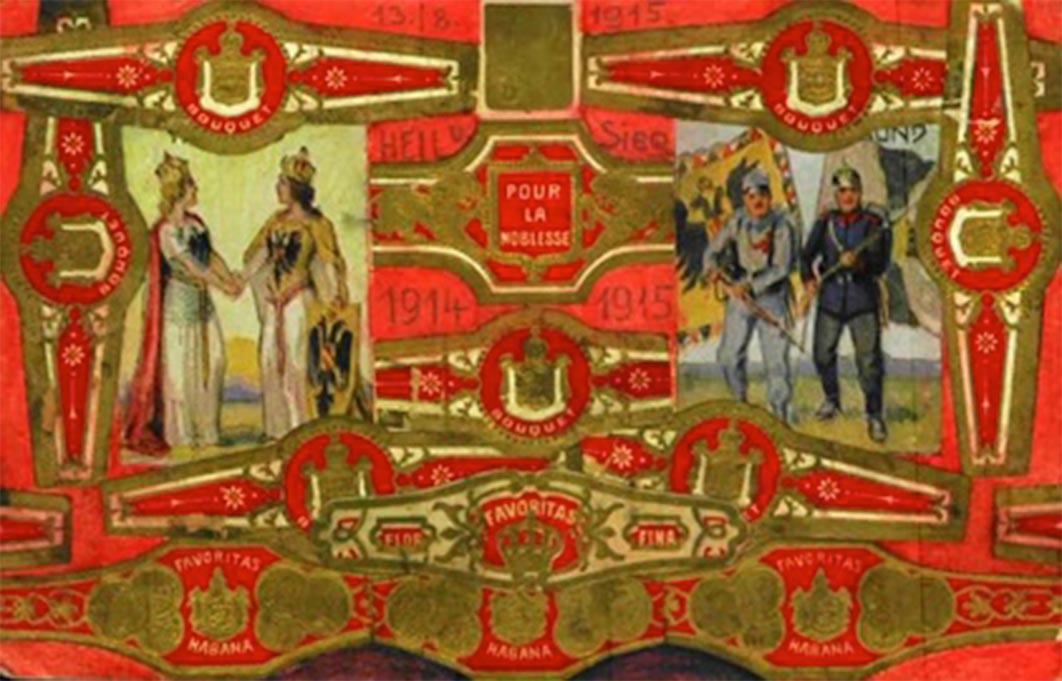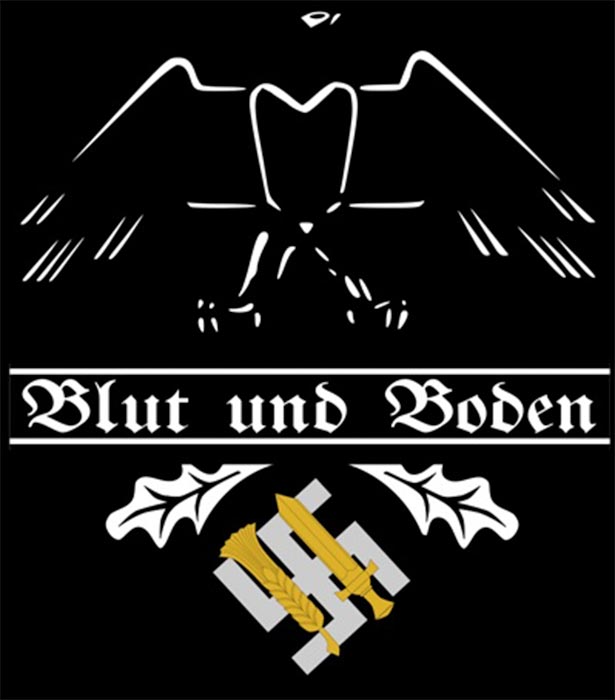
Ancient Germanic Mythos: Hitler the Archetypal Wotan and Savior
Regressus ad Uterum refers to the spontaneous regression to a time or a situation when a person or an entire nation felt like a child in the womb of their mother; safe and with the unhindered potential to realize its inner nature. So, to the defeated and fragmented post First World War Germans, the world of their ancestors, of Arminius and the much older one of the legendary myths, heroes, and the Valhalla of the great Nordic legends, became models of admiration and inspiration. The true German bard, Wagner, was able to bring this Mythos to the forefront and the Swiss psychoanalyst, Carl Gustav Jung identified certain archetypes manifesting in the collective subconscious of the German Volk.

Eastern Front theatre of World War I in 1916 (Public Domain)
What is most striking is the constancy and similarity of these archetypal figures and the violent power of their expansion, that led the German people to loosen their bond with the real world, luring them towards the unexplored universe of Mythos. Wotan's sons also rediscovered their ethnic-cultural origins through their exploration of the visionary cosmos of the Nordic fairy tales, following the publication of the fables of the Grimm brothers. In the Deutsche Mythologie (German Mythology) by Jakob Ludwig Karl Grimm, (1835) they tried to recover their Mythos in search of a superior spiritual light, hidden but powerful, within the Volk, to recompose the nation’s fragmented self.
The Roots of the Volk
The word Volk in German has a very particular semantic root and perfectly expresses these aspects: it does not only mean people, or race, but it encompasses the whole community of individuals who feel bound by the same blood, united by a ‘transcendent essence’ described sometimes as ‘myth’, sometimes as ‘nature’, other times as ‘cosmos’ but still all one with the most intimate spiritual personality. It is basically the tragedy of a people in search of the self, which is perceived as fragmented and confused. Among writers and philosophers increasingly complex theories began to develop with a common denominator: the link with Nature. According to volkisch theorists Paul de Lagarde and Julius Langbehn, belonging to a specific Volk is essentially linked to the nature or essence of the landscape of birth. For example, the Nordics - precisely because of their longing for the light that illuminates their lives amidst the grey mists enveloping their forests - would be true Lichtmenschen, (men of light), with solar qualities of energy and strength, and a depth of thought that contains the pure power of life and the possibility of generating bloodlines of great vitality.

"Blut und Boden"-(Blood and Soil) Symbol of the German "Reichsnährstand", Third Reich (Public Domain)
They contrasted Germanic essence to that of the Semitic group, and in particular the Jews, whom the volkisch theorists described as originating from desert lands burnt by the sun. Thus, the Jews would possess only an empty spirituality and a clear propensity to materialism and usury, as well as an intense industrialization that is opposed to Nature, the true strength of the Volk.
- Esoteric Nazi Spiritualism Backtracked to Odin and the Rune Ar
- Teutonic Knights’ Castle Turned into Nazi Cult Site?
- The Enigma of the Tomb of Alaric, King of the Visigoths
This perspective provided a way out from political disappointments; an escape beyond human reality, towards achieving a higher yearning for self-realization: the Volk, within the spiritual sphere. Man was no longer conceived according to the enlightened illusions of rationality and empirical knowledge and as a ruler of nature but, on the contrary, he immersed himself in a sort of transcendent mystical self-realization, placing himself in total agreement and communion with it, letting himself be permeated and guided by the instinct of his own Volk.
Fragmented Germany
After the Holy Roman Empire, the First Reich, the Reformation and the turbulent 17th and 18th centuries, Germany consisted fundamentally of individual regions in constant struggle with each other. The fall of Napoleon and the Congress of Vienna did not change the political landscape and neither did the revolutions of 1848 change the status quo. However, Germany had been unified on a linguistic front, thanks to the philological work of Martin Luther with his translation of the Holy Scriptures into German in the 16th century, which afforded the Germans a true national language, but the sense of unity did not extend beyond the literary. The German people were yearning for more.




